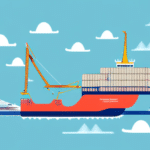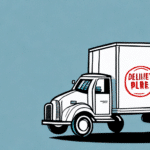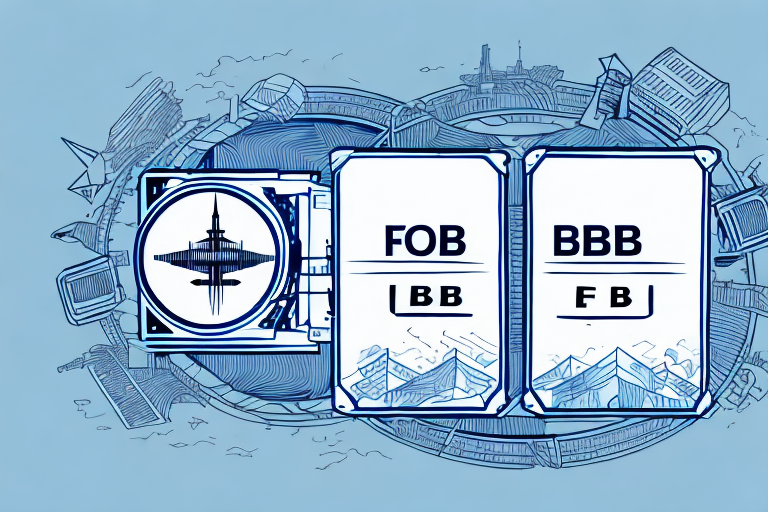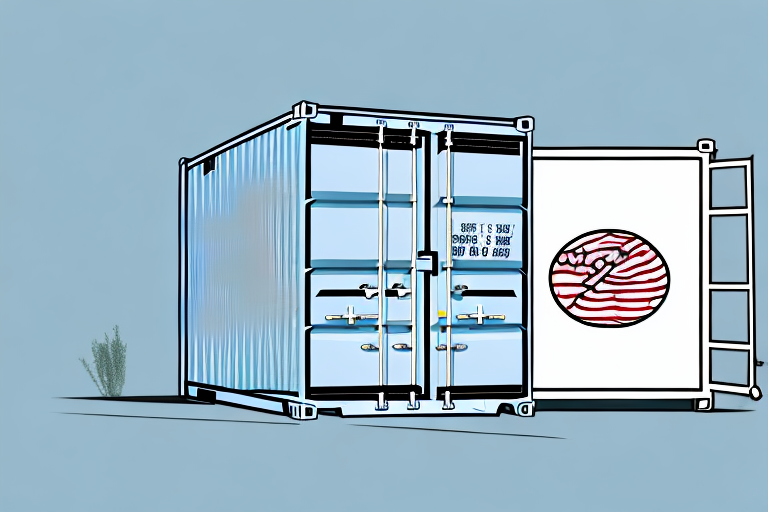Understanding the Benefits of FOB Shipping Destination
As a business owner, one of the key decisions you will need to make when shipping goods internationally is choosing the right freight term that works best for your business. One option that has gained popularity in recent years is FOB shipping destination. In this article, we will explore the benefits of FOB shipping destination and how it can be a game changer for your business.
What is FOB Shipping Destination?
FOB stands for "free on board" and refers to the point at which the seller's responsibility for the shipment ends and the buyer's responsibility begins. In FOB shipping destination, the seller is responsible for the shipment until it reaches the buyer's specified destination, at which point the buyer takes over responsibility.
It is important to note that FOB shipping destination differs from FOB shipping point, where the seller's responsibility ends when the shipment is loaded onto the carrier at the seller's location. With FOB shipping destination, the seller is responsible for any damages or losses that occur during transit, and the buyer should inspect the shipment upon arrival to ensure it is in good condition. FOB shipping destination is commonly used in international trade, where the buyer may not have a physical presence in the seller's country and needs the seller to handle the logistics of getting the shipment to the buyer's location.
How FOB Shipping Destination Works
In FOB shipping destination, the seller arranges and pays for the shipment to the buyer's specified destination. The seller is responsible for all the costs associated with loading, transportation, and unloading of the goods until they reach the buyer's destination. Once the goods arrive at the destination, the buyer takes over responsibility and liability for the goods. This means the buyer is responsible for any risk of damage or loss that may occur to the goods from that point forward.
It is important to note that FOB shipping destination is different from FOB shipping point. In FOB shipping point, the buyer takes responsibility for the goods as soon as they are loaded onto the carrier, and is responsible for all costs associated with transportation and unloading. With FOB shipping destination, the seller takes on more responsibility and costs, but it can provide peace of mind for the buyer knowing that the seller is responsible for the goods until they arrive at the specified destination.
Benefits of Choosing FOB Shipping Destination for Your Business
- Increased Control and Flexibility: Since the buyer takes over responsibility for the goods once they reach their destination, they can have greater control over the shipment and the logistics of getting the goods to their final destination. This is especially advantageous for businesses that are importing goods, as it can help them better manage their inventory and shipping schedules.
- Lower Shipping Costs: The seller is responsible for all costs associated with shipping the goods until they reach the buyer's destination. This includes loading and unloading fees, transportation costs, and insurance costs. By not having to pay these costs, the buyer can save money and allocate those savings to other areas of their business.
- Greater Transparency and Accountability: Since the buyer is responsible for the goods once they reach their destination, they can closely monitor the shipment and ensure that it arrives on time and in good condition. This helps build trust between the buyer and seller, leading to stronger business relationships in the future.
How FOB Shipping Destination Can Help You Save Money
- Reduced Shipping Logistics Costs: By letting the seller handle the shipping logistics, the buyer can avoid the costs associated with arranging and coordinating the shipment themselves.
- Prevention of Damage or Loss Costs: Because the seller is responsible for the shipment until it reaches the buyer's specified destination, the buyer can avoid the costs associated with any damage or loss that may occur during transit or unloading. This is especially beneficial for businesses that are importing large or expensive goods.
- Efficient Inventory Management: By having greater control over the shipment and logistics, the buyer can better manage their inventory and ensure that they are not overstocked or understocked. This helps avoid costly storage fees or lost revenue due to stockouts.
- Supply Chain Flexibility: With the seller handling the shipping logistics, the buyer can choose from a wider range of suppliers and manufacturers, regardless of their location. This helps businesses find the best deals and prices for their goods, without being limited by geographical constraints.
- Time and Resource Savings: By outsourcing shipping and logistics tasks to the seller, the buyer can focus on their core business activities and avoid the costs associated with hiring and training additional staff or investing in expensive shipping and logistics infrastructure.
The Role of FOB Shipping Destination in International Trade
FOB shipping destination plays a key role in international trade, as it can help facilitate the movement of goods across borders. This is because it offers more control and flexibility to the buyer, which can be especially important when dealing with regulatory requirements and customs inspections. By having more control over the shipment, the buyer can better manage the logistics of getting the goods through customs and to their final destination.
In addition, FOB shipping destination can help businesses avoid costly delays or extra charges that may arise from regulatory issues or customs inspections. By having more control over the shipment, the buyer can ensure that all relevant paperwork and documentation is in order and that the shipment is properly labeled and packaged, which can help move the goods through customs more quickly and efficiently.
Tips for Choosing the Right FOB Shipping Destination for Your Business
- Assess Business and Supplier Locations: Consider the location of your business and your suppliers to determine the most efficient shipping routes.
- Understand the Type of Goods: Different types of goods may have specific shipping requirements or regulations.
- Research Regulations and Customs Requirements: Be aware of the regulations and customs requirements of the country you are shipping to.
- Select a Reputable Shipping Provider: Choose a shipping provider with a proven track record of delivering high-quality service. This ensures that your shipment will be handled with care and arrive on time in good condition.
How to Negotiate Better Deals with FOB Shipping Destination
- Consider All Cost and Quality Factors: When negotiating deals, consider the location and size of the shipment, the type of goods being shipped, and any special requirements or regulations that need to be met.
- Clear Communication: Communicate clearly with your shipping provider about your needs and expectations.
- Customized Shipping Solutions: Work with your shipping provider to develop a customized shipping solution that meets your specific requirements. This can help ensure the best possible deal and that your shipment is delivered on time and in good condition.
Common Myths about FOB Shipping Destination Debunked
There are several common myths about FOB shipping destination that can lead businesses to make poor decisions when choosing a freight term. These myths may include the idea that FOB shipping destination is more expensive than other freight terms, or that it is only suitable for businesses that are importing large quantities of goods.
In reality, FOB shipping destination can be a cost-effective and flexible option for businesses of all sizes and types. By offering greater control and flexibility to the buyer, it can help businesses better manage their shipping logistics and save money on shipping costs.
Best Practices for Successful FOB Shipping Destinations
- Review Shipping Contracts Carefully: Understand all the terms and conditions of the shipping contract.
- Choose a Reputable Shipping Provider: Work with a provider known for reliability and quality.
- Properly Label and Package Shipments: Ensure that your shipment is properly labeled and packaged to arrive on time and in good condition.
- Develop a Customized Shipping Plan: Tailor your shipping plan to account for your business's specific needs and requirements.
- Communicate Special Instructions: Clearly communicate any special instructions or requests to your shipping provider.
The Future of FOB Shipping Destination in Global Trade
The future of FOB shipping destination in global trade looks promising, as more and more businesses are realizing the benefits of this flexible and cost-effective shipping term. With the continued growth of e-commerce and international trade, FOB shipping destination is likely to remain a key option for businesses looking to move goods across borders.
Risks and Challenges of Using FOB Shipping Destination
- Risk of Damage or Loss: Goods may be damaged or lost during transit.
- Regulatory Delays and Extra Costs: Issues with regulations or customs can cause delays or additional expenses.
- Disputes or Misunderstandings: Potential for conflicts between buyer and seller regarding responsibilities.
To minimize these risks, it's important to:
- Select a Reputable and Experienced Shipping Provider: Ensure your provider has a proven track record.
- Carefully Review All Shipping Contracts and Documentation: Understand your rights and responsibilities.
- Communicate Clearly and Regularly: Maintain open communication with all parties involved in the shipment.
Comparing FOB Shipping Destination to Other Freight Terms and Methods
When choosing a freight term, it's important to consider how it compares to other options available. Some other common freight terms and methods include EXW (ex works), CIF (cost, insurance, and freight), and DAP (delivered at place).
While each of these methods has its own advantages and disadvantages, FOB shipping destination can offer:
- Greater control and flexibility to the buyer
- Lower shipping costs
- More efficient inventory management
Case Studies: Successful Businesses That Use FOB Shipping Destinations
There are many successful businesses that have embraced FOB shipping destination as a key part of their logistics strategy. Some examples may include businesses in the retail, manufacturing, or e-commerce industries that rely heavily on imports and exports to conduct their business.
By choosing FOB shipping destination, these businesses have been able to:
- Reduce shipping costs
- Improve inventory management
- Better control the logistics of their shipments
All of which have helped them grow and succeed in a competitive global marketplace.
Conclusion
Choosing the right freight term can have a significant impact on your business's success in international trade. By choosing FOB shipping destination, you can enjoy:
- Greater control and flexibility over your shipments
- Lower shipping costs
- More efficient inventory management
While there are some risks and challenges associated with FOB shipping destination, working with a reputable and experienced shipping provider and adopting best practices can help minimize these risks and ensure that your shipments arrive at their destination on time and in good condition.






















